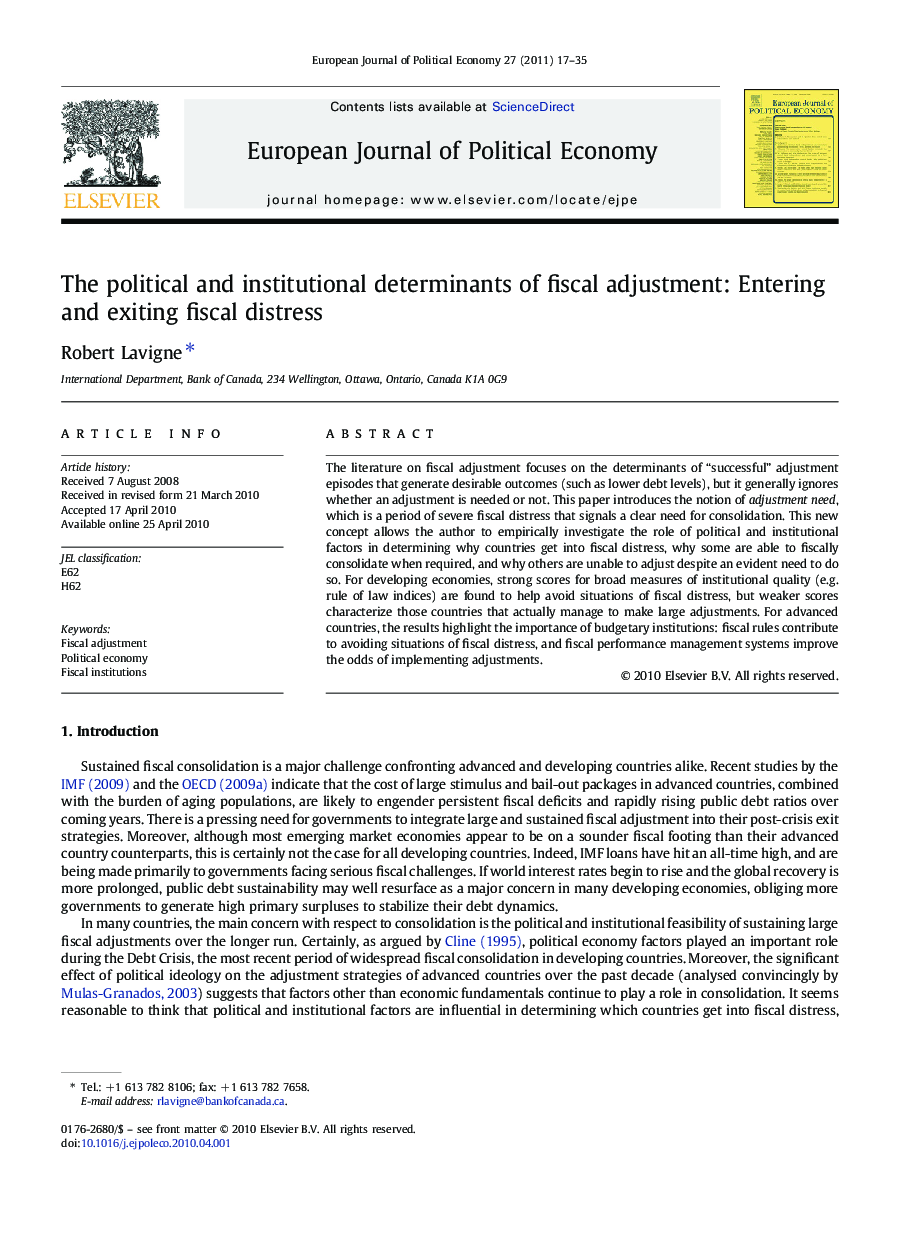| Article ID | Journal | Published Year | Pages | File Type |
|---|---|---|---|---|
| 5068233 | European Journal of Political Economy | 2011 | 19 Pages |
Abstract
The literature on fiscal adjustment focuses on the determinants of “successful” adjustment episodes that generate desirable outcomes (such as lower debt levels), but it generally ignores whether an adjustment is needed or not. This paper introduces the notion of adjustment need, which is a period of severe fiscal distress that signals a clear need for consolidation. This new concept allows the author to empirically investigate the role of political and institutional factors in determining why countries get into fiscal distress, why some are able to fiscally consolidate when required, and why others are unable to adjust despite an evident need to do so. For developing economies, strong scores for broad measures of institutional quality (e.g. rule of law indices) are found to help avoid situations of fiscal distress, but weaker scores characterize those countries that actually manage to make large adjustments. For advanced countries, the results highlight the importance of budgetary institutions: fiscal rules contribute to avoiding situations of fiscal distress, and fiscal performance management systems improve the odds of implementing adjustments.
Related Topics
Social Sciences and Humanities
Economics, Econometrics and Finance
Economics and Econometrics
Authors
Robert Lavigne,
